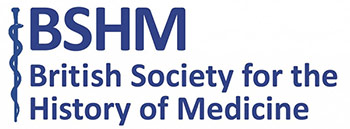The 1949 black and white film, The Third Man, about the black market in Austria after the end of World War II, is still the most frequent association made between the two key words Vienna and penicillin, says Susanne Krejsa MacManus.

Advertisement for penicillin production from Life magazine, Science Museum, London
In 1999, when the British Film Institute surveyed 1,000 people from the world of British film and television to list the greatest British films of the 20th century, The Third Man (1949) after Graham Greene’s book became No 1. It tells the story of an American writer, Holly Martins, who arrives in Vienna to accept a job with his friend Harry Lime, only to learn that Lime has died. Suspicious, Martins stays in Vienna to investigate and discovers the black market in penicillin.
Why was Vienna’s black market so active after the war? From 1941 onwards, British and American scientists and companies developed penicillin into the medical Wunderwaffe (wonder weapon) following its discovery by the Scottish bacteriologist Alexander Fleming (1881-1955). As soon as reasonable amounts of penicillin could be produced, some countries outside Britain and the United States began receiving donations of supplies or some support in starting their own production.
As a war enemy Germany did not receive any such help, nor did Austria, which had become part of the Third Reich in 1938. To block their scientists from learning about penicillin, British and American scientists were not permitted to publish their results on penicillin internationally.[1]
Post-war relief
However, after the war, Austria was deemed a liberated country and therefore entitled to help.[2] Virtually everything was needed. The country could not survive on its own, nor would it have been able to feed and help the vast numbers of displaced persons stranded there. The occupying forces had to organise and oversee the first months. Help also came from Red Cross organisations, religious groups and private initiatives.
The United Nations Relief and Rehabilitation Administration (UNRRA) had been founded in November 1943 to help nations after the end of World War II. In March 1946, UNRRA’s first train with provisions and goods arrived in Austria. A few weeks later medical supplies came, including penicillin, but sufficient only for 20 patients, and its distribution and assignment tightly controlled by a penicillin committee. To teach doctors in Austria how to use previously unknown materials, drugs and medical equipment, the British Council provided books, lecturers and contacts.[3]
With such limited supplies of penicillin, some illnesses were excluded from treatment, sexually transmitted diseases being one of them. To prevent fraud, the vials had to be returned after usage. Even so, the black market flourished. Newspapers from the years 1945 to 1949 reported thefts from American hospitals, counterfeiting, dilution with even dangerous substances and blackmail.
One in such scam an alleged Miss Austria, Norberta Grimm, had apparently turned the heads of two members of the American occupation forces in Vienna. In order to buy her a large diamond ring, the two of them stole penicillin from army stocks, which the girl was then supposed to sell or exchange on the black market.
Only, there was no Miss Austria in 1928,[4] Likewise, no one of her name ever appears in the list of winners for the other years.[5] The men were caught by police when one of them handed over ten bottles of penicillin to Grimm, worth a black-market price of $10,000 per bottle.
What lends the story a certain punch, though, is that it coincided with a lecture given by the famous British penicillin expert Prof. Ronald V. Christie in Vienna on the “miracle drug penicillin” – reported in the same newspaper edition, just a page further on.[6]
Susanne Krejsa MacManus PhD is an independent journalist, author and archivist in Vienna. She is a member of the History of Medicine/Medical Humanities working group of the Commission for History and Philosophy of the Sciences at the Austrian Academy of Sciences (ÖAW).
[1] Paul Rostock, Die Wunde, Berlin 1950, p. 290.
[2] Resolution No. 74: A Resolution relating to Operations of the Administration in Austria, https://www.parlament.gv.at/PAKT/VHG/V/I/I_00086/imfname_337149.pdf, p. 15.
[3] Englische medizinische Fachliteratur für Wien (British Medical Books for Vienna) in: Weltpresse, Feburary 9, 1946, p. 2
[4] Two Captains Convicted – New Yorkers Said to Have Sold Penicillin Stolen from Army, in: New York Times, May 27, 1946
[5] Two Captains Convicted in Penicillin Sale, in: The Stars and Stripes, May 26, 1946, p. 4.
[6] Wiener Kurier, June 21, 1946, page 3 (Norberta Grimm), page 4 (report on Prof. Christie’s lecture)
